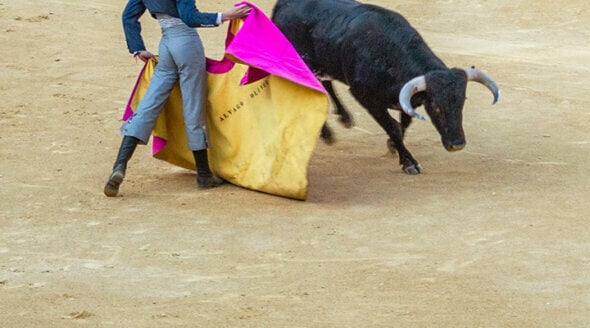Do These Angora Farms Look ‘Humane’ to You?
PETA US visited angora farms in China deemed “humane” by third-party auditors and discovered suffering, neglect and cruelty beyond imagination. Read on to learn more and take action against the few companies still selling angora.
Despite PETA Asia’s shocking investigation into Chinese angora wool farms, which revealed that live rabbits scream in pain as the fur is ripped out of their skin, some companies have continued to source angora wool from China, saying that they trust their farmers and that third-party audits have deemed their sources “humane”.
Suspecting that the auditing system was meaningless – and knowing that animals used for clothing suffer tremendously regardless of any ‘standards’ that might be in
place – PETA US set out to uncover the truth. A team travelled to China and visited five farms in different regions of mainland China. Unlike typical farm audits, these visits were all unannounced.
What they saw shocked them to the core.
Without exception, the members of the group confirmed with their own eyes what PETA Asia’s investigation had previously revealed—that live rabbits’ fur is ripped out of their skin and they are forced to live in horrendous conditions, despite assurances to the contrary.
 |
| Rabbits were yanked out of cages by their sensitive ears and pinned under workers’ feet while being violently sheared. |
 |
| Rabbits who had been plucked bare lay motionless in their cages. |
 |
| The temperature was over 37ºC with 80 percent humidity, and the rabbits were given little to no protection from the elements. |
 |
| Most of the rabbits were suffering from severe skin irritation caused by excessive salivation. The saliva ran down their necks and onto their chests and forelimbs. As a result, these areas of skin had become severely infected. |
 |
| Many animals exhibited rapid, open-mouthed breathing brought on by heat stress or respiratory disease. |
 |
| Many animals’ heads were tilted at a 90-degree angle. This condition is caused by damage to the ears, likely from being roughly handled every 60 days when yanked out of their cages for shearing. |
 |
| Because of the head tilt, they were unable to orient themselves to eat or drink and slowly died of starvation or dehydration. |
 |
| Veterinary care was grossly inadequate or non-existent. In many cases, the rabbits were offered no treatment for severe and chronic infections, sores, respiratory distress, malnutrition, blindness or neurological damage. |
 |
| Some rabbits were so sick and weak that they lay in their own waste and didn’t respond to the touch. |
 |
| Of the farms PETA US visited, rabbits were not euthanised on site under any circumstances, no matter how sick or injured they were. Animals were left to languish for days, weeks or even months without relief or treatment before finally succumbing to death. |
Learn more about the flawed auditing system that allowed these farms to be labelled ‘humane’.
PETA US’ heartbreaking findings expose the auditing system for the sham it really is and break the “humane” farming myth wide open.
However, we are making progress in the campaign against this cruelty. To date, more than 100 companies have banned angora.
What You Can Do
Please help the rabbits who are victims of the fashion industry:
- SHARE this information to help more people learn how angora is obtained:
- SHOP for clothes made exclusively from vegan materials, which you can be sure were produced without animal suffering.
- WRITE to any company that you see selling angora and ask them to stop.

